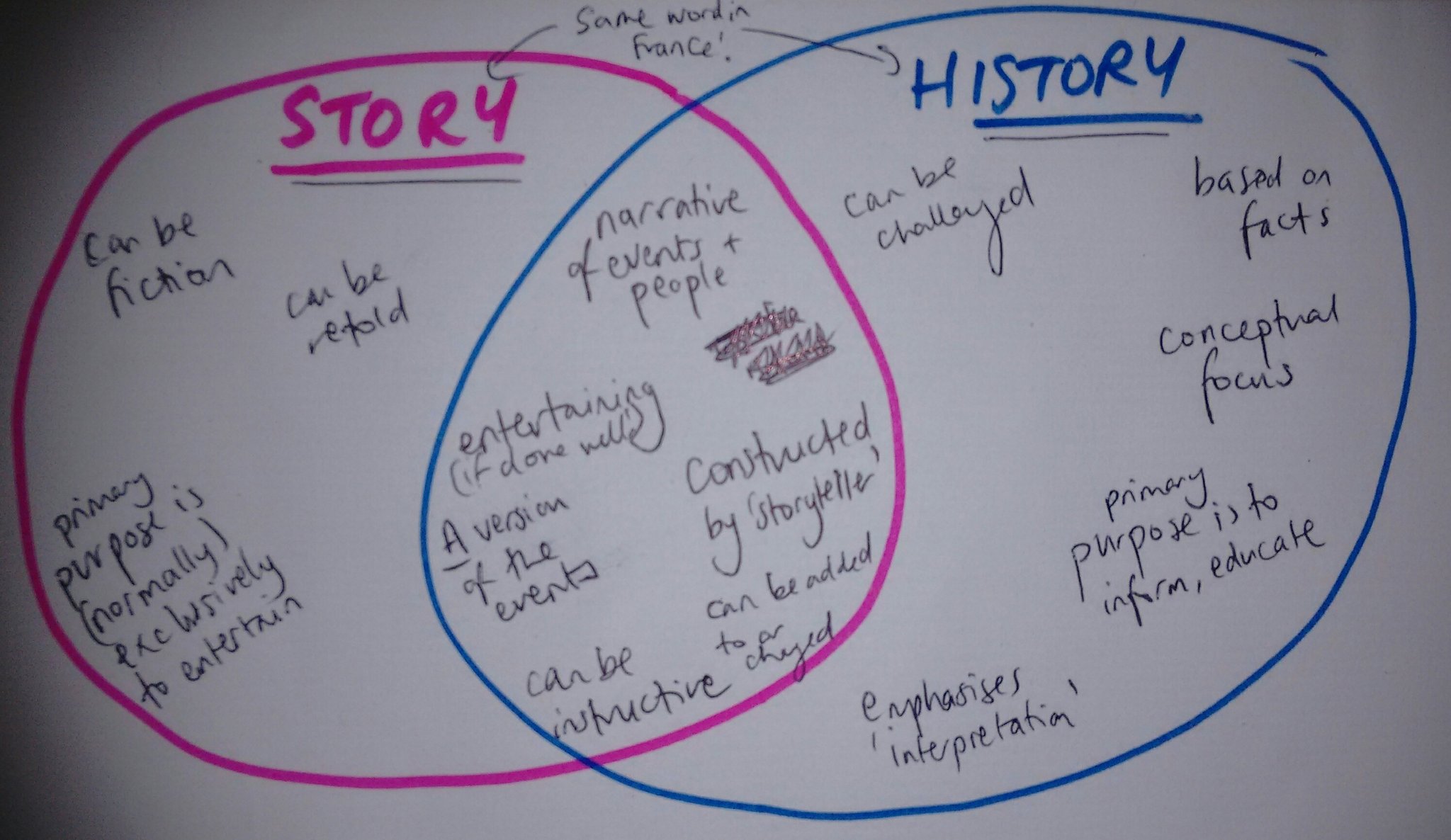Back to: History JSS 1
Welcome to class!
Hello, my brilliant JSS 1 student! Welcome back to history class. I’m thrilled you’re here, ready to embark on another exciting learning adventure. Today, we’re going to talk about something you’re probably already familiar with: storytelling! We’ll discover how it’s similar to history, but also how it’s different.
Differences between History and Storytelling

Think about the last time you heard a captivating story. Maybe it was a folktale passed down through your family, a storybook you read, or even a movie you watched. Stories are a wonderful way to entertain, teach lessons, and share experiences. They often feature exciting characters, dramatic events, and imaginative settings. History, in some ways, also tells stories. It narrates the events of the past, focusing on people, places, and significant happenings. Both history and storytelling can be engaging, and both can teach us valuable lessons.
The Differences
So, what makes them different? The biggest difference lies in their purpose and their reliance on facts. While storytelling often prioritizes entertainment and creative expression, history’s primary goal is to accurately represent the past. Think of it this way: a storyteller is like an artist, painting a picture with words, sometimes taking creative liberties to make the story more interesting. A historian, on the other hand, is like a scientist, carefully examining evidence and trying to reconstruct the past as truthfully as possible.

Let’s illustrate this with an example. Imagine a story about a brave warrior who saved their village from a monstrous creature. This story might be filled with thrilling battles, magical weapons, and dramatic escapes. It’s designed to entertain and perhaps teach us about courage and selflessness. While the story might be inspired by real events or people, it’s likely to be embellished with fictional elements to make it more exciting.
Now, let’s consider a historical account of a real-life warrior. A historian studying this warrior would rely on evidence like old documents, archaeological findings, and other historical sources to learn about their life, their achievements, and the world they lived in. The historian would strive to present an accurate picture of the warrior, based on the available evidence, even if the real story isn’t as dramatic as a fictional tale.
Another key difference is the use of sources. Storytellers can draw inspiration from anywhere – their imagination, other stories, or even a dream. Historians, however, must rely on evidence from the past. They analyze primary sources, like letters, diaries, and artifacts, and secondary sources, like historical books and articles, to piece together the story of the past. They have to be very careful to evaluate the reliability of their sources and distinguish between facts and interpretations.
Think about the Nigerian Civil War. A novelist might write a fictional story about a family torn apart by the war, focusing on their emotions, experiences, and struggles. This story could be very moving and help us understand the human cost of conflict. A historian, on the other hand, would study the causes of the war, the key events, and its impact on different groups of people. They would use historical documents, photographs, and interviews to create a factual account of the war.
While historians strive for objectivity, it’s important to remember that they are also human beings with their own perspectives.7 They may interpret the evidence in different ways, leading to different historical accounts.8 That’s why it’s important to consider multiple perspectives and sources when studying history.
Summary
So, while both history and storytelling deal with narratives, they differ significantly in their approach and purpose. Storytelling often prioritizes entertainment and imaginative expression, while history focuses on accurately reconstructing and interpreting the past based on evidence.
Evaluation
Now, let’s check your understanding. Can you explain in your own words the main differences between history and storytelling?
Think about a story you know well. How could a historian approach the same topic? What kind of evidence would they use?
Fantastic! You’re doing a great job. Remember, history is like a puzzle, and we’re learning how to put the pieces together to understand the past. I’m excited to continue this journey of discovery with you in our next lesson. See you there!
